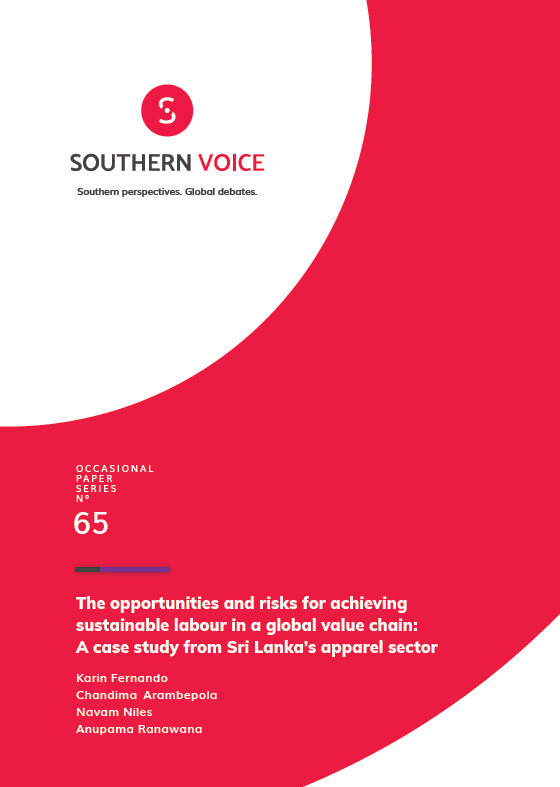The Opportunities and Risks for Achieving Sustainable Labour in a Global Value Chain
Description
The Fourth Industrial Revolution (4IR), with its advanced technology, is creating new work options but also job losses and polarisation. The 4IR will impact the Sustainable Development Goals (SDGs), especially in achieving sustainable economic growth and decent work for all (SDG 8). This study uses a qualitative approach complemented by secondary quantitative data. A multi-dimensional, SDG-based, sustainable-labour lens is used to form the conceptual framework that explores how automation impacts labour, particularly low-skilled workers operating within the global value chain (GVC) in the apparel industry in Sri Lanka. The study finds that automation in this industry has not led to the major displacement of low-skilled workers. However, it has narrowed the range of jobs while favouring high skilled ones. The apparels sector uses GVCs to access technology and investment to gain economic benefits aligned with SDG 8. GVCs thus forge synergies between skills development (SDG 4), and infrastructure and trade facilitation (SDGs 9 and 17). These trends have negative social consequences that affect job perceptions—mainly among women performing routine manual work—due to the social stigma attached to jobs, higher stress levels, and a lack of flexibility. This is exacerbated by a lack of institutional support outside the workplace for housing, childcare, and training. This study points to challenges in the environmental domain, especially in relation to global consumption (SDG 12).
